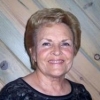
|
Search the Community
Showing results for tags 'kurds'.
-
‘Our mission is to strangle it before it’s even born’, says Turkish president of 30,000-strong force aimed at protecting territory held by Kurds Patrick Wintour Diplomatic editor Mon 15 Jan 2018 12.47 GMT Syrian Democratic Forces fighters in Raqqa, Syria. The force is dominated by the Kurdish YPG, which to Ankara is indistinguishable from the PKK, which it regards as a terror group Photograph: Rodi Said/Reuters https://www.theguardian.com/world/2018/jan/15/turkey-condemns-us-plan-for-syrian-border-security-force
-
29 Aug 2017 RayRat... A news flash has been reported to me that Baghdad has paid the Kurds approximately 80% of their debt today. The significance of this action is being researched for later details.…
-
They are protesting against the attack by ISIL that killed 32 people in the mainly Kurdish town of Suruc, but also against the government’s bombing of Kurdish militant positions. French Kurd Saleh Mustapha said: “Turkey is double-dealing. It’s trying to convince the international community that it’s fighting ISIS but in reality it’s targeting the Kurds.” Another French Kurd, Leon Edart, said: “We have seen people arrested but among the 600 people arrested, there were probably a hundred from ISIS and the rest were Kurds. In fact, we want the world to witness that.” Ankara denies claims by some Kurdish militants in Turkey that it has been covertly supporting ISIL against Syrian Kurds. Twitter posts related to the article at: http://www.euronews.com/2015/07/25/hundreds-of-french-kurds-stage-demonstration-in-paris/
-
Snippet: As a variety of Kurdish forces continue containing the Islamic State’s (ISIS/ISIL/IS) advance in Syria and Iraq, leaders are becoming increasingly vocal about the establishment of an independent Kurdistan, with some sources close to the ground telling Fox News that Kurds are dedicated to the formation of a new state–“whether the U.S. likes it or not.” http://www.breitbart.com/national-security/2015/07/03/we-have-suffered-like-the-jews-kurds-ready-to-build-own-state-whether-us-likes-it-or-not/
-
Fight against ISIL is helping the Kurds win their battle for independence. Photo: AP Fight against ISIL is helping with a different battle Jesse Rosenfeld February 11, 2015 Updated: February 11, 2015 06:30 PM The international community has, on occasion, been shocked by atrocities committed against the Kurds, but it has generally treated them as localised acts of oppression against a minority community in Iraq, Syria, Turkey or Iran. For years, the world turned a blind eye to Kurdish aspirations for self-determination. However, their centrality in the battle against ISIL and the unity forged by the Kurds as they fight a common enemy is forcing the world to see Kurdish demands for political and cultural rights in a new light. “The Kurdish people have been fighting for their existence for 40 years,” Ayse Efendi, recently told me in Suruc, the Turkish border town next to Kobani. “But since the war [with ISIL] the world is starting to understand what we are fighting for.” As a leader of the Kurdish Syrian refugee community, Ms Efendi, 55, plays a central role in organising the return of refugees to fight on the Syrian front. She is also the wife of Salih Muslim, leader of the political wing of the Syrian Kurdish Peoples Protection Units (YPG). With one son killed in the Syrian civil war and another fighting as a guerrilla in the armed wing of Turkey’s banned Kurdistan Workers Party (PKK), Ms Efendi’s life exemplifies the tightening cross-border ties between Kurds. Labelled a terrorist organisation across most of the West for its 29-year-old armed uprising against Nato member, Turkey, the PKK has become an essential fighting force against ISIL in northern Iraq. The PKK bolstered the US-backed Iraqi Kurdish peshmerga forces and trained Yazidi volunteer units on Mount Sinjar. And heavy artillery brought by the peshmerga to bolster the YPG, a PKK sister organisation, was essential to Kobani’s liberation. The Kurds are now in a very different political situation from the 1990s. At the time, the international community turned a blind eye to Turkey’s brutal repression of them and to the Kurdish civil war in Iraq. Now, the Kurdistan Regional Government in Iraq is a major oil supplier to Turkey and Recep Tayyip Erdogan’s government is the first to begin peace talks with the PKK. Iraqi Kurdistan’s economy is doing well and political autonomy has strengthened in the past few years. Meanwhile, there’s been some easing of restrictions on the Kurdish language in Turkey. Even so, any attempt to mobilise Kurdish nationalists in Turkey’s south-east is often firmly repressed by state security forces and PKK leader Abdullah Ocalan remains in a Turkish prison. And Turkey actively blocked attempts by Turkish Kurds to bolster their Syrian compatriots who were fighting ISIL around Kobani. As a result, the cross-border response to ISIL is both a fight for survival against a new and bloody threat and a means to overcome long-standing injustices. Suruc, a town of Turkish Kurds, is an example of the changes under way in Kurdish society. In September, the town became flanked by refugee camps that housed many of the 200,000 people who fled Kobani and the surrounding areas and came across the border into Turkey. This has drawn Kurds from around Turkey and as far away as Iran to volunteer in Suruc’s poorly equipped camps. Meanwhile, hospitals run by the Kurdish municipality covertly treat YPG fighters who would be arrested if they went to Turkish government hospitals. The refugee camps and Suruc town are united in a general sense of political admiration for Mr Ocalan and his left wing, secular, nationalist movement. Mr Ocalan has shaped the Kurdish struggle for decades, from the founding of the PKK- inspired Kurdish Iranian guerrilla group, PJAK, to the creation of autonomous Kurdish cantons in Syria in 2014. Last year, when he declared from his prison cell that the Kurdish struggle should be directed at creating a federation of locally driven democratic and autonomous communities, it was a shift away from the aspirations to statehood. But this seems to have been about realist concerns – how best to tell the West and Turkey that a resolution with Ankara was possible without creating a separate state? It also addressed a key problem for the Kurds – how to assert sovereignty across so many borders. Even so, in Suruc, Mr Ocalan is seen as a symbol of sacrifice and commitment to the cause of the Kurdish peoples. Inside the thin plastic refugee tents, he is revered for leading a struggle to put Kurds on the map or at least to get them to the point where they can live freely and speak their own language. The advance of ISIL and the Kurdish resistance campaign to the extremist group is redrawing the borders of Syria and Iraq. While ISIL has accelerated the sectarian splintering in both countries, the Kurds have more territory in their control than at any time in recent history. The political shift away from statehood has made the Kurds’ goals of greater autonomy and self-determination in Kurdish areas more possible. Amid the carnage, Kurdish national aspirations are strengthening. Jesse Rosenfeld is a Canadian journalist based in Turkey. He has lived in the Middle East since 2007 On Twitter: @jrosyfield
-
Islamic War Erupts in Hamburg, Germany By Soeren Kern Gatestone Institute Posted 2014-10-16 04:26 GMT German police in riot gear, accompanied by armored vehicles and water cannons, charge into a street battle between Kurds and radical Islamists in Hamburg, Oct. 8, 2014. (Image source: N24 video screenshot). Parts of downtown Hamburg, the second-largest city in Germany, resembled a war zone after hundreds of supporters of the jihadist group Islamic State [iS] engaged in bloody street clashes with ethnic Kurds. The violence--which police say was as ferocious as anything seen in Germany in recent memory--is fuelling a sense of foreboding about the spillover effects of the fighting in Syria and Iraq. Some analysts believe that rival Muslim groups in Germany are deliberately exploiting the ethnic and religious tensions in the Middle East to stir up trouble on the streets of Europe. The unrest began on the evening of October 7, when around 400 Kurds gathered outside the Al-Nour mosque near the central train station in Hamburg's St. George district to protest against IS attacks on the Syrian Kurdish town of Kobani. According to police, the initially peaceful protest turned violent when the Kurds were confronted by a rival group of around 400 Salafists armed with baseball bats, brass knuckles, knives, machetes and metal rods used to hold meat in kebab restaurants. In the melee that followed, more than a dozen people were injured, including one person who nearly had his leg chopped off by someone wielding a machete, and another person who was stabbed in the stomach with a kebab rod. Some 1,300 police officers, brandishing batons and accompanied by water cannons, were deployed to halt the clashes, which lasted into the early morning hours of October 8. In the final tally, hundreds of weapons were seized and 22 people were arrested. "I had the feeling that we are living in Hamburgistan," the imam of the Al-Nour mosque, Daniel Abdin, told the German newsmagazine Der Spiegel. "The atmosphere was very, very explosive." Police said they were shocked by what they described as an unprecedented level of violence. In an interview with the newspaper Passau Neue Presse, the chairman of the German Police Union, Rainer Wendt, reported that police in Hamburg "experienced life-threatening brute force" by perpetrators who were armed "to the teeth." Wendt warned that the IS-Kurdish conflict is "threatening to unleash a proxy war on German soil." A police official in Hamburg, Gerhard Kirsch, said the level of the violence points to a new "dangerous dimension" that "we have so far not seen at other demonstrations." The chairman of the German Police Union in Hamburg, Joachim Lenders, described the viciousness as unprecedented. "The violence in the early hours of Wednesday was of a ruthless and inhuman brutality as I have rarely experienced," he said, adding that without the timely deployment of the police there would almost certainly have been fatalities. Lenders added: "If in the middle of Hamburg 800 hostile people are fighting each other with machetes, knives and iron rods, there must be consequences for the perpetrators. Politically motivated extremists and religious fanatics have brought a conflict to Hamburg that cannot be solved here." On the same day of the unrest in Hamburg, dozens of mostly Chechen Muslim immigrants clashed with Kurdish Yazidis--a non-Arab and non-Muslim minority that has been persecuted by IS--in Celle, a town in Lower Saxony that is home to more than 7,000 Yazidis. Police said the violence, in which nine people were injured, was fuelled via social media after radical Muslim preachers sent out a call to Islamists to confront the Yazidis. The conflict in Celle was reminiscent of--but far more violent than--the Muslim-Yazidi clashes that occurred in the eastern Westphalian town of Herford in August. "Solidarity with Kobani" demonstrations have also taken place in Munich--where protestors waving large Kurdish flags occupied the offices of the Christian Social Union [CSU], the Bavaria-based sister party to Germany's ruling Christian Democratic Union party [CDU]--as well as in the western German cities of Berlin, Bremen, Göttingen, Hamm, Hannover, Kiel, Oldenburg and Stuttgart. Germany is home to an estimated 4.3 million Muslims, one million Kurds and 60,000 Yazidis. According to the 2013 annual report (published in June 2014) of the German domestic intelligence agency, the Bundesamt für Verfassungsschutz [bfV], Germany is also home to 30 active Islamist groups and 43,000 Islamists, including 950 members of the Lebanese terrorist group Hezbollah, 1,300 members of the Muslim Brotherhood and 5,500 Salafists. Salafism is a radically anti-Western ideology that openly seeks to replace democracy in Germany (and in other parts of the West) with an Islamic government based on Sharia law. Although Salafists make up only a fraction of the Muslims in Germany, authorities are increasingly concerned that many of those attracted to Salafi ideology are impressionable young Muslims who are susceptible to perpetrating terrorist acts in the name of Islam. German authorities have faced criticism for being overly complacent concerning the rise of Salafism in the country. On October 2, for example, the German public broadcaster ARD revealed that German officials have for many years pursued a secret policy of encouraging German Islamists to travel abroad rather than to invest in counter-radicalization efforts. According to ARD, the general idea was that if German jihadists were intent on committing terrorist acts, it would be better that they do so somewhere else than inside Germany. The overall aim was to "protect our population" by exporting the problem, the head of counter-terrorism for Bavarian Police, Ludwig Schierghofer, told ARD. The reasoning was "to bring those persons who pose a risk that they will commit terrorist attacks outside of the country," he said. "If someone had become radicalized and wanted to leave, then the policy was to allow them to leave or even accelerate their departure by various means." An estimated 450 German Muslims have traveled to Syria and Iraq, and at least 100 are now believed to have returned to Germany. Meanwhile, a growing number of German politicians are receiving death threats from German Salafists. One such politician, Tobias Huch of the (classical liberal) Free Democratic Party [FDP], has been repeatedly threatened with beheading as the price to pay for leading a fundraising campaign to provide food and water for Kurds in northern Iraq. "I am not afraid, but I have become more careful," says Huch, who now receives police protection. He says he has altered his daily comings and goings in order to be less predictable. Among other lifestyle changes, he has cut out regular visits to restaurants, pubs and other public venues. Another politician, Ismail Tipi of the ruling CDU, is paying the price for criticizing the rise of Salafism in Germany. "I receive threats almost every day," Tipi says. "The death threats against me have no limits. The Salafists want to behead me, shoot me, stone me, execute me and they have many other death wishes for me." According to CDU official Wolfgang Bosbach, politicians who receive death threats should not allow themselves to be intimidated. "Under no circumstances should they give in and change their stance, otherwise the extremists will have achieved their objectives." The head of the FDP, Christian Lindner agrees. "It is unacceptable for Liberals to allow religious extremists to take an ax to the central values of our constitution. We will not give in to threats and intimidation, rather we will demand the determined reaction of the rule of law." By contrast, the Vice President of the German Parliament, Claudia Roth of the Green Party, believes the growing radicalization of Muslims in Germany points to problems in German society. In an interview with the newspaper Die Welt, Roth said: "The violent clashes between Kurdish and Islamist groups in German cities and on German streets refer more to internal German problems than the situation in northern Syria and northern Iraq. "As a society we must ask ourselves: how can it be that people who live in Germany and in large part are born and raised here, are supporters of a brutal, inhuman and fundamentalist terror group such as the IS and attack peaceful protestors with knives, sticks and machetes. Here in Germany, the IS threatens to become a refuge for frustrated young people who lack future prospects." While politicians debate causes and solutions to the problem of radical Islam, police throughout Germany remain on alert for more violence.
-
Greetings, Here is some of the Best News I have read lately and just maybe we can still WIN this game in the last half of the seemingly last quarter!!! The Iraqi parliament has elected Kurdish politician Fouad Massoum [Fuad Massum] as president, succeeding Jalal Talabani. The 76-year-old is a founding member of Mr Talabani’s Patriotic Union of Kurdistan (PUK) party. Associated Press reports that Massoum is considered a soft-spoken moderate, known for keeping good relations with Sunni and Shiite politicians. According to BBC News, the presidency is the second major government post to be filled, after Salim al-Jabouri was elected as parliament speaker last week. The next step will be for Massoum to select a candidate for prime minister to try to form a new government.
-
Prime Minister Nuri al-Maliki, in an earlier meeting with KRG President Barzani Maliki calls for the Kurdistan to accept the government's options on the budget and confirms: able to be passed without the Kurds Author: HA, HH, MK Editor: HA, HH 1.16.2014 14:10 Number of readings: 65 Long-Presse / Baghdad Called State of Law coalition led by Prime Minister Nuri al-Maliki, on Thursday, the presidency of the Kurdistan region to accept one of the options presented by the government in order to settle disputes because of the oil companies operating have and export of oil, and pointed out that the acceptance of the Kurdistan these proposals will make it easier to pass the budget law of 2014, in Parliament , as he emphasized that the House is able to pass the budget without the Kurds. The MP said the coalition Ali Falh, during a press conference at the parliament building and attended (range Press), "The government has made several proposals to the Kurds, including the proposed demanded by the Kurds already a Provides dues of the oil companies operating in the region and give 17% of the territory of Budget versus handing the territory of oil extracted from Kurdistan to be exported by the central government. " Alfalh added that "the presidency of the region claim to accept the options offered by the government in order to pass the budget, because we Imam election event in particular, and we know very well the possibility to pass the budget and get a sufficient quorum after the budget was passed unanimously by the Cabinet of Ministers with the exception of the Kurds." He Alfalh to that "other proposals that have been submitted is that is committed to the region to deliver the government 400 thousand barrels of oil a day, and if the number had fallen for the agreed quantity shall be deducted the differences of the proportion of the region in the budget," and continued that "the third option is to take over the government process the extraction and export of oil and this is like the rest of the oil-producing provinces and the government is committed to provide all the benefits the region which enjoined the law. " The parliamentary blocs, warned in (15 January 2014), a repeat of the scenario in 2013 and the emergence of a new crisis between the province and the center due to pass this year's budget in the Cabinet amid refusal Minister Kurds, as shown that the differences over the Peshmerga and the oil companies are still intact and did not addressed The central government, confirmed that the government dropped the ball in the court of Parliament, and called for a budget discussion in the Finance Committee to resolve all differences before submitting them to read. The Cabinet voice, on Wednesday (15 January 2014), on the state budget and decided to send it to the House of Representatives and that after one day of a meeting held by the leaders of the political blocs in the presence of the Prime Minister is absent by the head of the Supreme Council of the Islamic Ammar al-Hakim Hakim and Parliament Speaker Osama Najafi. And the voice of the Iraqi cabinet, Wednesday also, to approve a bill the federal budget for the Republic of Iraq for the fiscal year 2014, and referred to the House of Representatives, according to the provisions of Articles (61 / item and 80 first / second item) of the Constitution, taking into account some of the amendments that were approved by the Council, including the fact that the export of crude oil produced in Kurdistan by SOMO exclusively by multifactorial and approved with the participation of representatives of the province in the pricing committee. It also provides for adjustments to exclude amounts federal contracts oil companies (16 trillion dinars) and the provincial companies (900 billion dinars) of sovereign expenditure and be re-calculated on the basis of the region's share of 17% of the amount of investment firms and this paragraph are permanent. The parliamentary Finance Committee announced on (September 30 2013), that the 2014 budget amounting to 174.6 trillion dinars, indicating that the bulk of which was allocated to the energy sector and security. The Ministry of Planning and Development Cooperation, recently announced included 132 thousand degrees and careers within the budget of the year 2014, indicating that the energy and security were the most important focus of the next budget, which was sent to the Council of Ministers. The budget of the year 2013 amounted to 138 trillion Iraqi dinars, on the basis of calculating the price of a barrel of oil at $ 90, and the amount of export of 2.0009 million barrels a day.
-
31-03-2013 | (Voice of Iraq) BAGHDAD / Baghdadiya News Kurdistan Alliance announced, Sunday, that the meeting of the ministerial parliamentary bloc with Kurdish President of the Kurdistan region on Monday will Faisal on return to Baghdad or leave the government. A spokesman for the coalition supporter Tayeb told (Baghdadi News), said that "coalition forces Kurdish representative of the Democratic Party and the Patriotic Union and the Islamic Group and the Islamic Union as well as the mass change opposition will meet tomorrow with President of Kurdistan Region Massoud Barzani to make a final decision about returning to the House of Representatives and the Council of Ministers in the federal government or the provincial continue ", adding that" the final decision Arbil will depend on the report submitted by the tripartite committee set up by Barzani to consider differences with Baghdad and the author of Rose Nuri Shaways, Fuad Masum, Fouad Hussein. " He added that "throughout the province Kurdish blocs to its government with the federal government has not made any positive moves to appease the Kurdish House and end the row with him," denying "media leaks on high-level visit by a delegation from Baghdad, headed by Prime Minister Nuri al-Maliki to Arbil."








